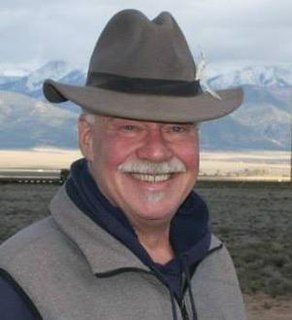A Quote by Pope John Paul II
This is why moral uneasiness is destined to become even more acute. It is obvious that a fundamental defect, or rather a series of defects, indeed a defective machinery is at the root of contemporary economics and materialistic civilization, which does not allow the human family to break free from such radically unjust situations.
Related Quotes
Unless the fundamental categories of economics such as 'property' were to be redefined in a radically personal way the liberal rationalist curse which had established economics as a scientific discipline cut off from human interests would proliferate. Economic models ... have failed to incorporate any meaningful index of individual benefit other than the original utilitarian one, ... the index of increasing income or an increasing flow of commodities.
Jedi do not fight for peace. That's only a slogan, and is as misleading as slogans always are. Jedi fight for civilization, because only civilization creates peace. We fight for justice because justice is the fundamental bedrock of civilization: an unjust civilization is built upon sand. It does not long survive a storm.
Human life is an extension of the principles of nature, and human civilization is a venture extrapolated out of human natures: man and his natural potential are the root of the entire human domain. The great task of all philosophizing is to become competent to interpret and steer the potential developmental forces in human natures and in the human condition, both of which are prodigiously fatalistic.
The love of money is the root of all evil. That is the fundamental truth that I have verified through 3 decades of empirical, investigative, legal, academic research trying to answer some fundamental questions about human existence and why we behave the way we do, why we think the way we do, why we act the way we do...It is the love of money that has the potential to exterminate- to render extinct- the entire human race.
My position is that it is high time for a calm debate on more fundamental questions. Does human spaceflight continue to serve a compelling cultural purpose and/or our national interest? Or does human spaceflight simply have a life of its own, without a realistic objective that is remotely commensurate with its costs? Or, indeed, is human spaceflight now obsolete?
Above all, documentary must reflect the problems and realities of the present. It cannot regret the past; it is dangerous to prophesy the future. It can, and does, draw on the past in its use of existing heritages but it only does so to give point to a modern argument. In no sense is documentary a historical reconstruction and attempts to make it so are destined to failure. Rather it is contemporary fact and event expressed in relation to human associations.
Indeed, religion allows people to imagine that their concerns are moral when they are highly immoral - that is, when pressing these concerns inflicts unnecessary and appalling suffering on innocent human beings. This explains why Christians like yourself expend more "moral" energy opposing abortion than fighting genocide. It explains why you are more concerned about human embryos than about the lifesaving promise of stem-cell research. And it explains why you can preach against condom use in sub-Saharan Africa while millions die from AIDS there each year. (25)
More and more, as civilization develops, we find the primitive to be essential to us. We root into the primitive as a tree roots into the earth. If we cut off the roots, we lose the sap without which we can't progress or even survive. I don't believe our civilization can continue very long out of contact with the primitive.
I think when you're an adult you start to like the very things that make you different. If you obsess about some defect, you make it obvious to everyone, and suddenly everyone is staring at just that defect. It's always like that. The more you hide something, the more it shows. But when you accept your defect, suddenly no one on earth sees it anymore.










































